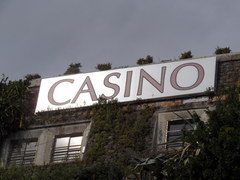 Bank references given in response to credit checks can only be relied upon by those who request them, not by undisclosed third parties. The Supreme Court so ruled in a test case concerning bouncing cheques signed by a punter at a London gaming club.
Bank references given in response to credit checks can only be relied upon by those who request them, not by undisclosed third parties. The Supreme Court so ruled in a test case concerning bouncing cheques signed by a punter at a London gaming club.
The man had asked the club to provide cheque cashing facilities up to £800,000 so that he could spend money at the tables. In order to avoid disclosing the purpose of the credit facility, the club employed an intermediary to seek a credit reference from the man’s bank for twice that sum. A credit reference was duly provided and the man’s cheque cashing facility was increased to £1.25 million.
After drawing two cheques totalling that amount, the man went on to win £427,400. However, both cheques were returned unpaid and the club had not heard from him since. The club suffered a total loss of £802,940. The club launched proceedings to recover that sum from the bank and was at first successful when a judge found that the bank owed it a duty of care. That ruling was, however, subsequently reversed by the Court of Appeal.
In ruling on the club’s challenge to the latter ruling, the Supreme Court noted that it was agreed that the bank had no reasonable basis on which to provide the reference, in that it had not opened an account for the man until two days after the reference was sent and that account had a nil balance when it was closed shortly afterwards.
In dismissing the appeal, however, the Court observed that the bank reference was directed simply and solely to the intermediary, who alone had requested it. The bank had no reason to believe that the intermediary was acting on behalf of the club, as undisclosed principal. The bank had not assumed any responsibility to the club and the relationship between them lacked the elements of proximity and mutual consent required for a duty of care to arise.

